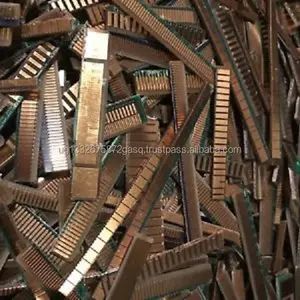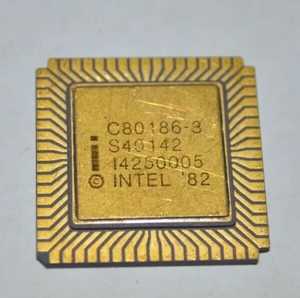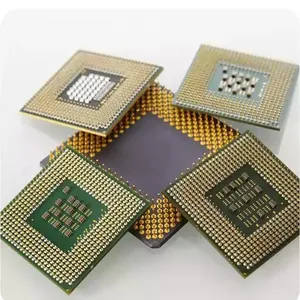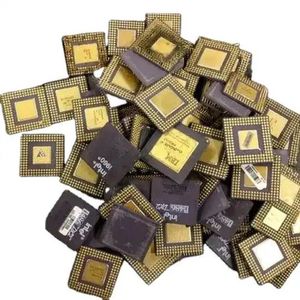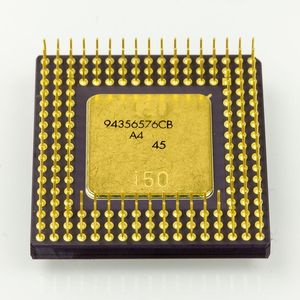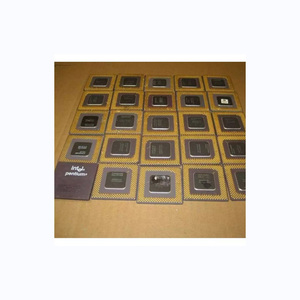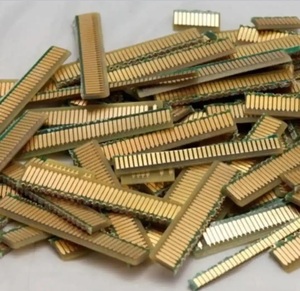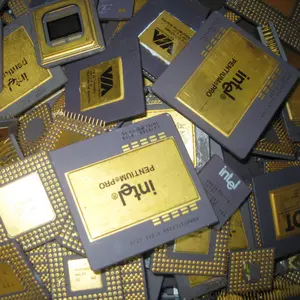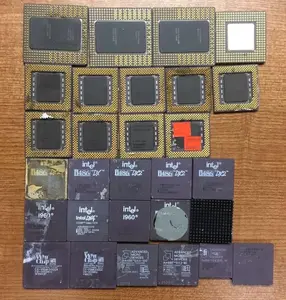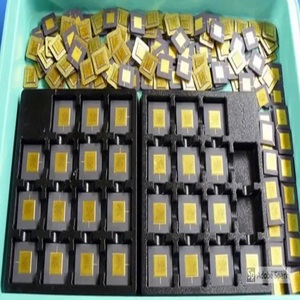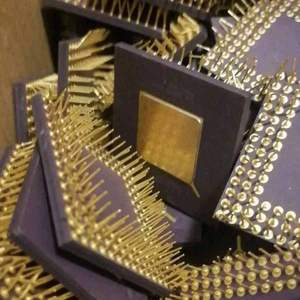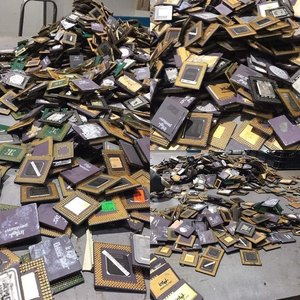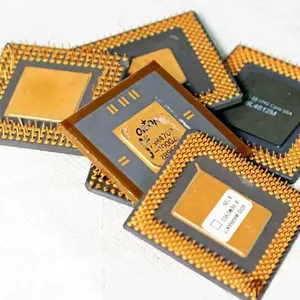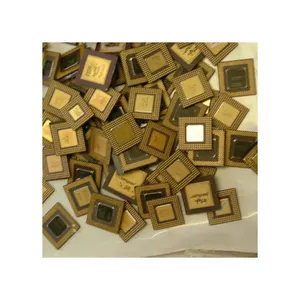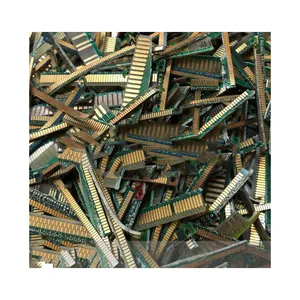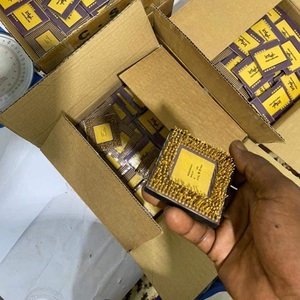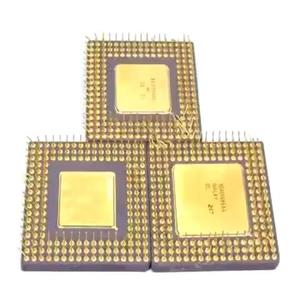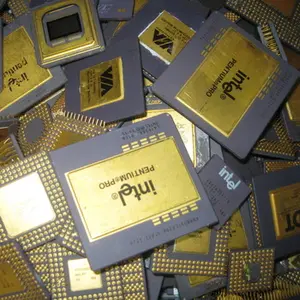Cpu Processor Scrap Distributor

















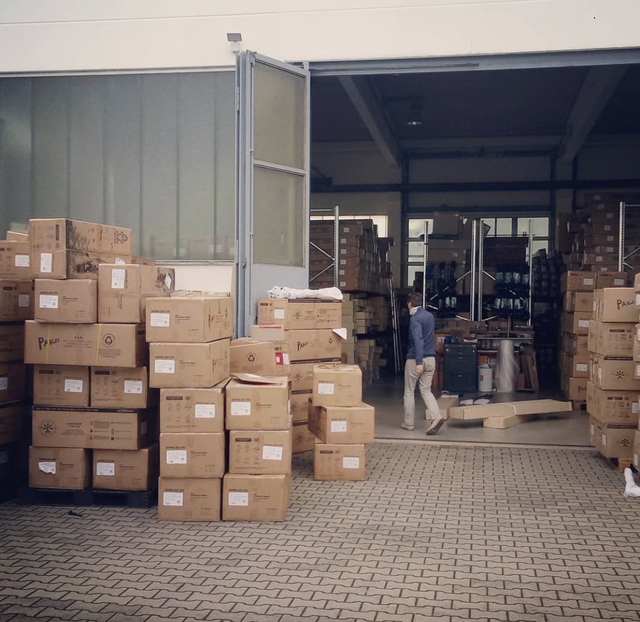


About cpu processor scrap distributor
Where to Source CPU Processor Scrap Distributors?
The global market for CPU processor scrap distribution is characterized by a decentralized network of specialized recyclers and industrial traders, primarily concentrated in emerging logistics hubs across Africa, South America, and Southeast Asia. These regions serve as aggregation points for end-of-life electronic components sourced from decommissioned data centers, legacy IT infrastructure, and e-waste recovery operations. Suppliers typically operate within integrated metal recycling ecosystems, enabling access to high-yield gold-bearing ceramic processors from Intel 386/486 series, Pentium Pro units, and AMD i5 architectures.
Distributors leverage proximity to urban e-waste streams and regional trade corridors to maintain consistent inventory flows. Key operational advantages include low-cost sorting and preprocessing facilities, flexible packaging configurations (by weight or boxed lots), and established export channels for bulk shipments. Average processing capacities range from 50 to 500 kilograms per order, with lead times typically between 7–15 days for ready-to-ship stock. Buyers benefit from competitive pricing models, where ceramic CPU scrap with gold-plated pins commands premiums between $8–20/kg, while lower-grade mixed batches are available from $1.50/kg.
How to Evaluate CPU Processor Scrap Suppliers?
Procurement decisions should be guided by systematic evaluation criteria focused on material quality, transaction reliability, and operational responsiveness.
Material Composition & Yield Verification
Confirm the presence of high-gold-content ceramic processors (e.g., Intel 486, Pentium Pro) versus plastic-based or low-yield variants. Request detailed product descriptions specifying pin plating type, substrate material, and preparation method (trimmed vs. untrimmed). High-recovery batches often emphasize "gold recovery yield" as a key selling point, indicating optimized pre-processing for refining efficiency.
Order Flexibility and Pricing Structure
Assess minimum order quantities (MOQs) and price brackets across suppliers:
- Standard MOQs range from 1 kg (sample batches) to 100–500 kg for wholesale volumes
- Price dispersion reflects grade differentiation: $1.50–$3/kg for bulk low-grade scrap; $8–$20/kg for premium gold-rich ceramic processors
- Suppliers offering per-kilogram pricing provide greater flexibility for testing and small-scale procurement
Supplier Performance Indicators
Prioritize partners demonstrating measurable service performance:
- Response time under 6 hours indicates high engagement capacity
- Consistent online revenue activity suggests sustained export operations
- On-time delivery tracking and reorder rate metrics reflect reliability, though current data shows incomplete reporting across most profiles
What Are the Leading CPU Processor Scrap Distributors?
| Company Name | Main Products | Typical Price Range | Min. Order | Response Time | Specialization |
|---|---|---|---|---|---|
| JAMNAGAR UGANDA LIMITED | CPUs, Copper Scrap, Oil, Plants | $4–12/kg | 25–30 kg | ≤9h | Wholesale used CPUs (AMD, i5), ready-to-ship batches |
| Gf Trade Internacional LTDA | Copper Scrap, Aluminum Scrap, Oil | $1.90–6/kg | 1–50 kg | ≤15h | Intel 386/486 ceramic scrap, high-yield gold recovery batches |
| WWW LOGISTICS PTY LTD | Aluminum Scrap, Metal Scrap, Animal Feed | $1.50–20/kg | 100–500 kg | ≤6h | Bulk ceramic processor scrap, trimmed gold, original-grade batches |
| AMA-INT GmbH | Spices, Animal Feed, Pork, Milk Powder | $8/kg fixed | 100 kg | ≤5h | High-quality gold ceramic CPU scrap, uniform pricing |
| JAK Installationen GmbH | Copper Scrap, Aluminum Scrap, Beef, Oil | $0.55–6.55/kg | 50–100 kg or 100 boxes | ≤2h | Premium ceramic scrap, factory-priced lots, boxed packaging options |
Performance Analysis
JAK Installationen GmbH stands out for its rapid ≤2-hour response time and granular pricing tiers, making it ideal for buyers requiring technical validation and sample procurement. WWW LOGISTICS PTY LTD offers the widest volume scalability with MOQs up to 500 kg at entry-level pricing ($1.50/kg), suitable for large refineries. AMA-INT GmbH provides pricing stability with a flat $8/kg structure across all products, reducing negotiation complexity for repeat orders. Gf Trade Internacional LTDA caters to niche recovery operations through low MOQs (1 kg) and specialized listings for high-yield gold extraction. JAMNAGAR UGANDA LIMITED supports fast deployment with ready-to-ship inventories of modern used CPUs, including AMD and Intel i5 series.
FAQs
How to verify the gold content in CPU processor scrap?
Request spectral assay reports or XRF (X-ray fluorescence) analysis from suppliers for batch-specific gold concentration. Alternatively, conduct third-party lab testing on sample units to validate yield claims, especially for "high-recovery" or "gold-plated" designations.
What is the typical lead time for bulk orders?
Most suppliers offer 7–10 day lead times for in-stock scrap batches. Orders exceeding 500 kg may require additional sorting or consolidation, extending fulfillment to 14 days. Air freight shipping adds 5–7 days; sea freight ranges from 20–40 days depending on destination.
Can suppliers accommodate customized sorting or grading?
Yes, several distributors support basic customization such as separating ceramic from plastic substrates, trimming pins, or batching by processor generation. Advanced sorting (e.g., isolating Pentium Pro units) may require minimum volume commitments and incur processing surcharges.
Are there certifications relevant to electronic scrap sourcing?
While ISO 9001 is uncommon among scrap suppliers, buyers should prioritize vendors with documented quality control procedures. Compliance with WEEE (Waste Electrical and Electronic Equipment) handling standards and adherence to RoHS-free dismantling practices indicate responsible sourcing, particularly for EU-bound refining operations.
What payment and transaction safeguards are recommended?
Use secure payment mechanisms such as escrow services or platform-backed trade assurance programs. Avoid full prepayments for first-time transactions. Require shipment documentation including itemized packing lists and weight verification to prevent discrepancies upon delivery.




